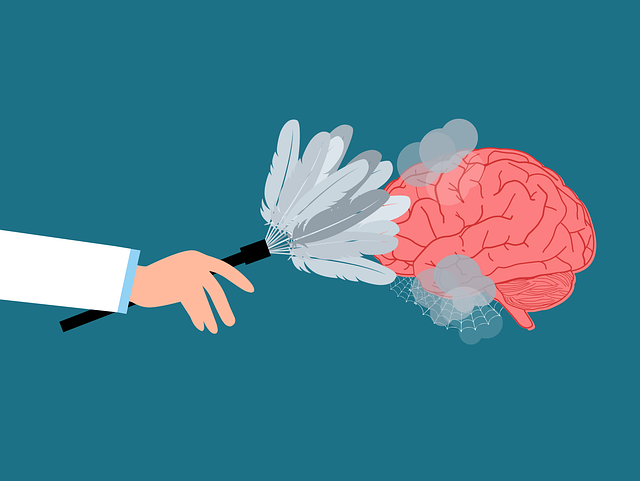Broomfield Interpersonal Issues Therapy (BIIT) is a leading advocate for mental health, transforming public perceptions and policies through community engagement, education, and policy analysis. Their dual role of providing specialized services and advocating for Mental Health Policy Analysis ensures equitable access to anxiety relief and promotes evidence-based practices fostering mental wellness. BIIT's innovative therapy equips individuals with improved communication, emotional intelligence, and conflict management skills, leading to better mental health outcomes. They collaborate with local communities and professionals through outreach programs, education, and partnerships to build resilience and reduce stigma, ultimately helping folks lead fulfilling lives. Success is measured through client satisfaction, improved coping mechanisms, and reduced anxiety or depression symptoms.
Mental health advocacy initiatives play a pivotal role in fostering well-being and shaping supportive communities. This article delves into the multifaceted aspect of mental health activism, exploring its profound impact on individuals and society at large. We examine strategies employed by successful programs, such as Broomfield Interpersonal Issues Therapy, to empower individuals and advocate for better care. By understanding these approaches, we can collaborate with communities and professionals to build comprehensive advocacy networks, ultimately enhancing access to quality mental health support.
- Understanding Mental Health Advocacy: Its Role and Impact
- Broomfield Interpersonal Issues Therapy: A Closer Look
- Strategies for Effective Mental Health Advocacy Initiatives
- Building Alliances: Collaborating with Communities and Professionals
- Measuring Success: Evaluating the Effectiveness of Advocacy Programs
Understanding Mental Health Advocacy: Its Role and Impact

Mental health advocacy plays a pivotal role in shaping public perceptions, policies, and support systems for individuals grappling with various interpersonal issues and mental health conditions. It involves raising awareness, challenging stigma, and advocating for evidence-based practices that promote mental wellness. Through initiatives such as community outreach programs, educational campaigns, and policy analysis, advocates drive conversations and create a more inclusive and supportive environment.
For instance, organizations like Broomfield Interpersonal Issues Therapy (BIIT) contribute to this advocacy by offering specialized services while also pushing for Mental Health Policy Analysis and Advocacy. By addressing the root causes of mental health disparities and advocating for better access to care, these efforts aim to ensure that everyone has the opportunity to achieve Anxiety Relief and lead fulfilling lives.
Broomfield Interpersonal Issues Therapy: A Closer Look

Broomfield Interpersonal Issues Therapy (BIIT) is a therapeutic approach that focuses on fostering resilience and addressing interpersonal challenges. This unique method recognizes the profound impact that relationships and social interactions have on mental well-being. By targeting specific interpersonal issues, BIIT aims to help individuals navigate their social environments more effectively, thereby reducing stress and promoting positive mental health outcomes.
The therapy emphasizes building strong, healthy relationships as a key component of stress reduction methods. Through various techniques, clients learn to improve communication skills, enhance emotional intelligence, and develop strategies to manage conflicts constructively. These efforts contribute significantly to mental illness stigma reduction, as it empowers individuals to challenge negative societal perceptions and fosters understanding among peers. By participating in BIIT, folks gain valuable tools for coping with daily stressors and improving their overall quality of life.
Strategies for Effective Mental Health Advocacy Initiatives

Mental health advocacy initiatives require a multi-faceted approach to address complex interpersonal issues effectively. One key strategy is the implementation of Community Outreach Program[s]. These programs bring mental health services directly to underserved populations, breaking down barriers and increasing accessibility. For instance, Broomfield Interpersonal Issues Therapy could organize workshops and seminars in local communities to educate individuals on early signs of mental distress and available support systems.
Additionally, designing comprehensive Mental Health Education Programs is vital. These programs should focus not only on raising awareness but also on fostering self-care practices. By empowering individuals with coping mechanisms and resources, these initiatives can create a more supportive environment for mental well-being. Encouraging open conversations about mental health and reducing stigma through education are long-lasting strategies that can lead to significant improvements in community mental health outcomes.
Building Alliances: Collaborating with Communities and Professionals

Building alliances is a key strategy in mental health advocacy, fostering collaboration between communities and professionals to create a supportive network. At Broomfield Interpersonal Issues Therapy, we recognize that addressing mental health issues requires a collective effort. By engaging with local communities, we can implement Emotional Well-being Promotion Techniques tailored to specific needs, ensuring that resources are accessible and relevant. This alliance brings together therapists, social workers, community leaders, and educators to promote Resilience Building through various initiatives like group therapy sessions, mental wellness journaling exercises, and educational workshops.
Through these partnerships, we aim to normalize conversations around mental health, reduce stigma, and empower individuals with coping mechanisms. By combining professional expertise with community engagement, we can create a supportive environment that encourages open dialogue and fosters Mental Wellness Journaling Exercise Guidance, enabling folks to take an active role in their emotional well-being.
Measuring Success: Evaluating the Effectiveness of Advocacy Programs

Measuring success is a vital component of any advocacy initiative, and mental health programs are no exception. Evaluating the effectiveness of advocacy programs like Broomfield Interpersonal Issues Therapy (BIIT) requires a comprehensive approach. This includes tracking key performance indicators (KPIs), such as client satisfaction, improved coping mechanisms, and reduced symptoms of anxiety or depression. By utilizing tools like surveys, interviews, and clinical assessments, advocates can gain valuable insights into the program’s impact.
One effective strategy is to implement Crisis Intervention Guidance, which focuses on immediate support during acute mental health crises. Additionally, promoting Positive Thinking and encouraging Self-Care Routine Development for Better Mental Health can be measured through regular check-ins and follow-up sessions. These evaluations not only help in refining the advocacy program but also ensure that clients receive tailored interventions that significantly enhance their overall well-being.
Mental health advocacy initiatives, such as those highlighted through the exploration of Broomfield Interpersonal Issues Therapy, play a pivotal role in fostering understanding and support for individuals facing mental health challenges. By employing effective strategies that include community collaboration and professional partnerships, these initiatives can significantly enhance access to resources and improve overall well-being. Measuring success through evaluation ensures that advocacy programs remain impactful and tailored to the evolving needs of those they serve.














